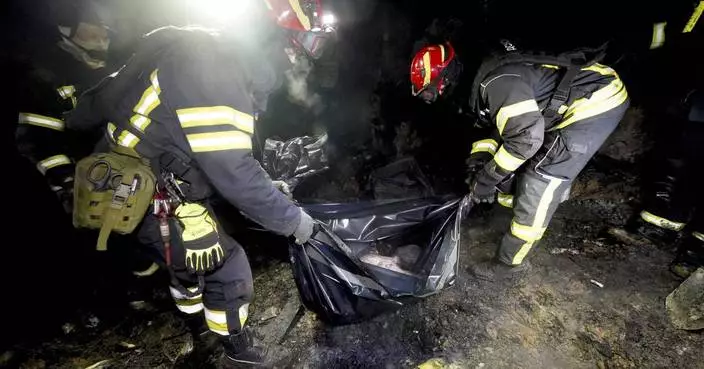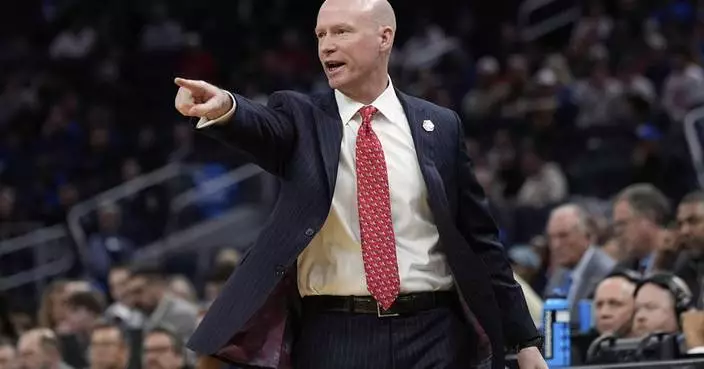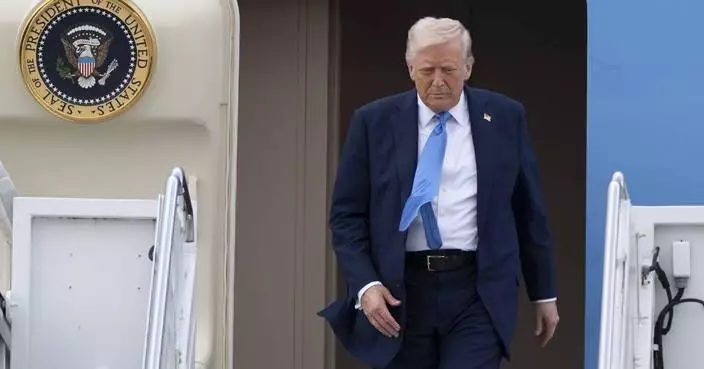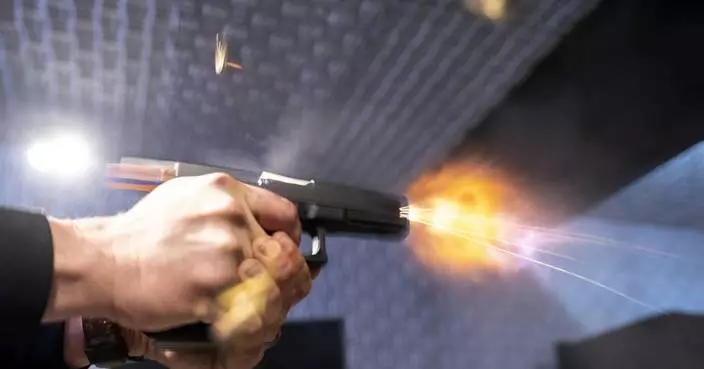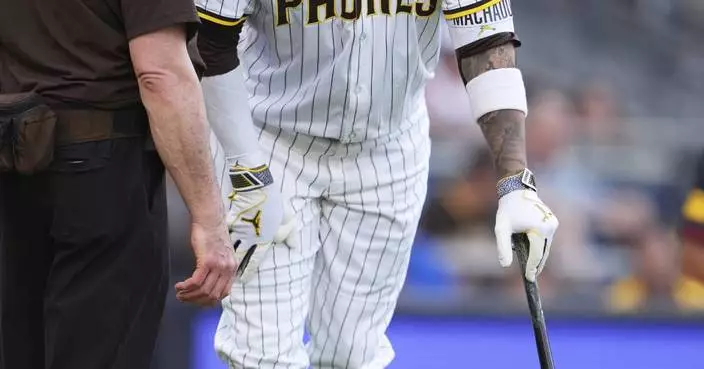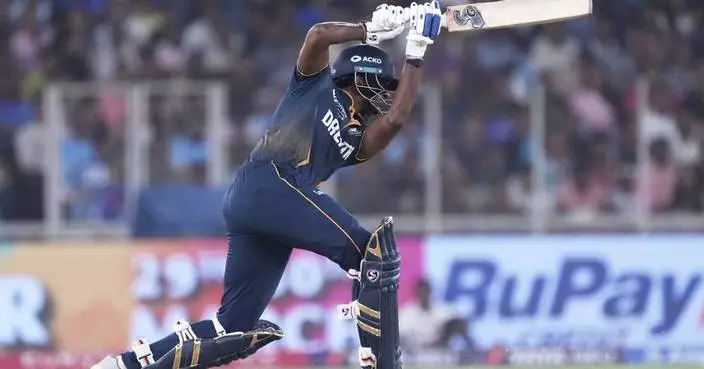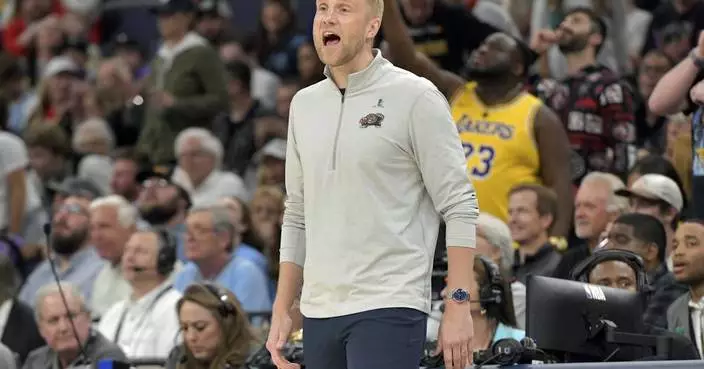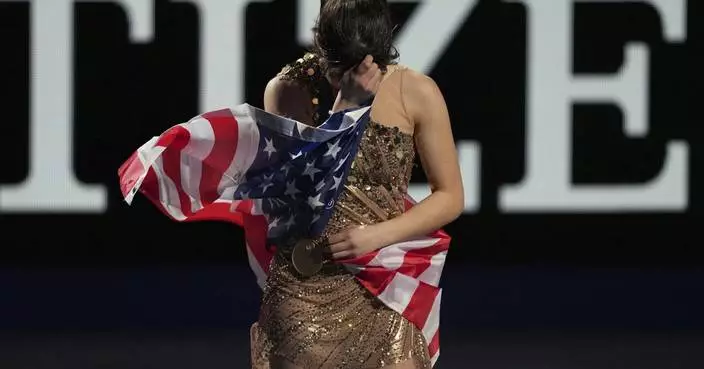BUENOS AIRES, Argentina (AP) — Argentina is proving it can win without Lionel Messi, just in case he opts not to play in the 2026 World Cup.
After Argentina secured a spot in next year's competition, the main question now is whether the 37-year-old star will play in his sixth tournament and try to win back-to-back championships.
“We will see what happens, there’s plenty of time," Argentina coach Lionel Scaloni said. "We must go one game a time otherwise (we) will be speaking about the same thing the rest of the year and we need to leave him alone, we will see. He will decide it whenever he wants, let’s not drive him crazy with this.”
On Tuesday, hours after Argentina qualified for the next World Cup, it went out and handed Brazil its worst-ever loss World Cup qualifying — a 4-1 thrashing. That was days after Argentina's 1-0 victory at Uruguay.
Both victories came without Messi. The eight-time Ballon d’Or winner had been ruled out after sustaining a low-grade adductor muscle injury.
Messi, who captained Argentina to the 2022 World Cup title in Qatar, has been sidelined several times by Inter Miami this season because of injury concerns.
His Argentina teammates left no doubt about their hopes for Messi to return.
“With Messi we might have scored two or three more goals,” said striker Julián Álvarez, who scored one goal against Brazil.
Bolivia’s failure to beat Uruguay on Tuesday assured Argentina — which leads the South American qualifiers with 31 points — of one of the continent’s six direct spots for the 48-team World Cup to be co-hosted next year by the United States, Canada and Mexico.
After Tuesday's big win at Monumental de Nunez Stadium, midfielder Rodrigo de Paul seemed to speak for the whole country.
"The best of our teams is always when the No. 10 is playing," De Paul said, “because he is the greatest of all time.”
AP soccer: https://apnews.com/hub/soccer

From left, Argentina's Leandro Paredes, Enzo Fernandez and Thiago Almada celebrate defeating Brazil during a World Cup 2026 qualifying soccer match at Monumental Stadium in Buenos Aires, Argentina, Tuesday, March 25, 2025. (AP Photo/Natacha Pisarenko)

Argentina's players celebrate defeating Brazil in a World Cup 2026 qualifying soccer match at Monumental Stadium in Buenos Aires, Argentina, Tuesday, March 25, 2025. (AP Photo/Gustavo Garello)

Argentina's Leandro Paredes celebrates after defeating Brazil in a World Cup 2026 qualifying soccer match at Monumental Stadium in Buenos Aires, Argentina, Tuesday, March 25, 2025. (AP Photo/Gustavo Garello)
WASHINGTON (AP) — A judge challenging the outcome of his North Carolina Supreme Court race was photographed wearing Confederate military garb and posing before a Confederate battle flag when he was a member of a college fraternity that glorified the pre-Civil War South.
The emergence of the photographs comes at a delicate time for Jefferson Griffin, a Republican appellate judge who is seeking a spot on North Carolina's highest court. Griffin, 44, is facing mounting criticism – including from some Republicans – as he seeks to invalidate over 60,000 votes cast in last November’s election, a still undecided contest in which he is trailing the Democratic incumbent by over 700 votes.
The photographs, which were obtained by The Associated Press, are from when Griffin was a student at the University of North Carolina at Chapel Hill from 1999-2003 and a member of the Kappa Alpha Order, one of the oldest and largest fraternities in the U.S., with tens of thousands of alumni.
Griffin said he regretted donning the Confederate uniform, which was customary during the fraternity's annual “Old South” ball.
“I attended a college fraternity event that, in hindsight, was inappropriate and does not reflect the person I am today,” Griffin said in a statement. “At that time, like many college students, I did not fully grasp such participation’s broader historical and social implications. Since then, I have grown, learned, and dedicated myself to values that promote unity, inclusivity, and respect for all people.”
One of the pictures, taken during the 2001 ball, shows Griffin and roughly two-dozen other fraternity members clad in Confederate uniforms. Another photograph from the spring of 2000 shows Griffin and other Kappa Alpha brothers in front of a large Confederate flag. He served in 2002 as his chapter’s president.
Kappa Alpha has proven to be a lightning rod for controversy over the decades, often due to the racist or insensitive actions of some of its members. A number of politicians have been forced to apologize for having worn Confederate costumes at the fraternity's functions or for being photographed in front of a Confederate flag.
Griffin said Friday he voted in favor of a resolution prohibiting Kappa Alpha members from displaying the rebel battle flag at the group’s national convention in 2001. The fraternity didn’t ban the wearing of the Confederate uniforms until nearly a decade later, long after Griffin graduated.
“We believe in cultural humility, we respect the best parts of our organization’s history, and through education we challenge our members to work for a better future. These things are not mutually exclusive,” said Jesse Lyons, a spokesman for Kappa Alpha’s national office in Lexington, Virginia.
The fraternity claims Robert E. Lee as its “spiritual founder” and long championed the Southern “Lost Cause," a revisionist view of history that romanticizes the Confederacy and portrays the Civil War as a valiant struggle for “states’ rights” unrelated to the enslavement of Black people. In decades past, some Kappa Alpha chapters referred to themselves as a “klan,” a term that many viewed as an unsubtle wink to the Ku Klux Klan.
The photographs featuring Griffin were taken at a time when many other Kappa Alpha chapters were reevaluating their celebration of the Confederacy.
During Griffin’s time in the fraternity, some in his chapter questioned the appropriateness of dressing up in Confederate uniforms for the ball. Griffin opposed abandoning the tradition, according to a person familiar with the situation, who spoke on the condition of anonymity out of fear of reprisal. The uniforms stayed.
Griffin said he would “not respond to unsubstantiated comments based on memories of 20-plus years past.”
In high school Griffin also expressed an affinity for Robert E. Lee, the Confederate general who led southern forces during the Civil War. In a 1998 feature on high school “scholars of the week” in The News & Observer of Raleigh newspaper, Griffin said Lee was his No. 1 choice to include on an “ideal guest list” for a party.
The Kappa Alpha Order was founded in 1865, not long after Lee surrendered to the Union Army, at a Virginia college where Lee served as president. At least one of the first members was a former rebel soldier who had served under Lee, who is revered by the fraternity as the ideal of gentlemanly Southern chivalry.
For more than a century, Kappa Alpha threw “Old South” parties. They were formal affairs where the Confederate battle flag was flown and fraternity brothers dressed in replica Confederate gray uniforms and their dates wore antebellum-style hoop skirts. Sometimes they would ride through campus on horseback.
Some Kappa Alpha chapters, particularly in the South, clung to their traditions, including the wearing of blackface, even as they drew protests and public sentiment shifted.
A Kappa Alpha “Old South” parade at Alabama’s Auburn University in 1992 drew supporters waving Confederate battle flags, as well as counter protesters who burned them. In 1995, a group of Kappa Alpha members at the University of Memphis hurled racial slurs while beating a Black student who caused a disturbance outside a frat party, the Memphis Commercial Appeal reported at the time.
The University of North Carolina at Chapel Hill was no exception to the turmoil. Under pressure from student groups, the school's Kappa Alpha chapter in 1985 canceled its annual “Sharecropper’s Ball," which some attended in blackface. Fraternity members said blackface was worn because the event needed both Black and white attendees, but promised to discontinue the practice, according to a news story in the Daily Tar Heel student newspaper.
The Kappa Alpha chapter at North Carolina’s Wake Forest University stopped allowing members to wear Confederate uniform and display the Confederate flag in 1987.
But other chapters held on longer. It wasn't until Kappa Alpha members at the University of Alabama wore Confederate uniforms during a parade that paused in front of a Black sorority, which elicited intense blowback, that the national headquarters forbade them. It’s unclear if the chapter at UNC banned the uniforms before the national organization did.
Griffin is not the first public official to draw unwanted attention for their college-age embrace of symbols drawn from the darker chapters of the South's past.
Virginia's then-governor, Democrat Ralph Northam, came under intense criticism in 2019 over a racist photo that appeared on his yearbook page of his medical school. The incident led reporters to scour the college histories of other Southern leaders, forcing a number of politicians to publicly address their time as Kappa Alpha brothers.
Mississippi Gov. Tate Reeves, then the state’s Republican lieutenant governor, dodged questions in 2019 about photos showing him wearing a Confederate uniform while he was a Kappa Alpha member at Millsaps College in the early 1990s. While Reeves was enrolled there in October 1994, other members of the fraternity were disciplined for wearing afro wigs and Confederate battle flags and shouting racial slurs at Black students, the AP reported at the time.
Republican South Carolina Gov. Henry McMaster declined to comment after yearbooks listed him as the leader of the fraternity's chapter at the University of South Carolina in 1969, along with photos of members wearing Confederate uniforms and posing with a rebel flag.
And Tennessee Gov. Bill Lee, also a Republican, expressed regret for participating in “Old South” parties as a student at Auburn University in the 1970s.
Contact AP’s global investigative team at Investigative@ap.org or https://www.ap.org/tips/
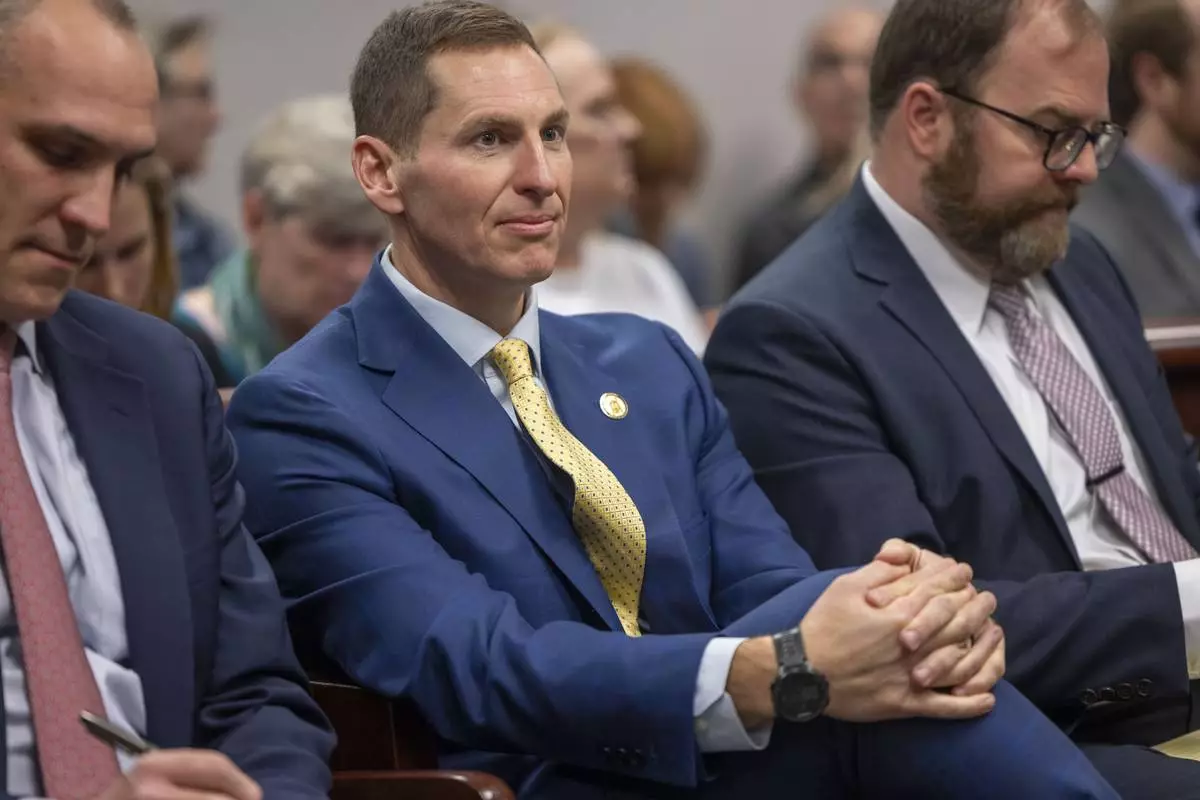
FILE - Judge Jefferson Griffin, the Republican candidate for the N.C. Supreme Court listens to testimony in Wake County Superior Court on Friday, February 7, 2025 in Raleigh, N.C. (Robert Willett/The News & Observer via AP, File)







